Amazon and eBay images broken by Photobucket's 'ransom demand'
- Published
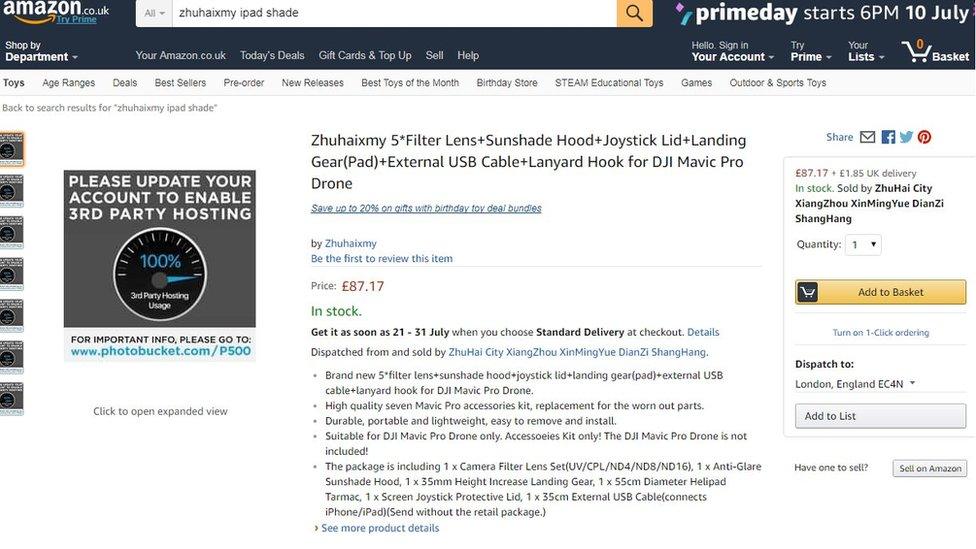
Several items have lost their product images on Amazon
Thousands of images promoting goods sold on Amazon and other shopping sites have been removed after a photo-sharing service changed its terms.
Ebay and Etsy have also been affected, in addition to many forums and blogs.
The problem has been caused by Photobucket introducing a charge for allowing images hosted on its platform to be embedded into third-party sites.
The company caught many of its members unaware with the change, prompting some to accuse it of holding them to ransom.
Denver-based Photobucket is now seeking a $399 (£309) annual fee from those who wish to continue using it for "third-party hosting" and is facing a social media backlash as a consequence.
The BBC received an automated response when it tried to contact the company and is still seeking comment.
Policy switch
Photobucket has been online since 2003 and says it has more than, external 100 million customers and more than 15 billion images on its servers.
Part of its attraction with small retailers was the fact that its ad-supported "free" accounts could be used to upload images of goods to a single destination from where they could be pushed to multiple outlets.
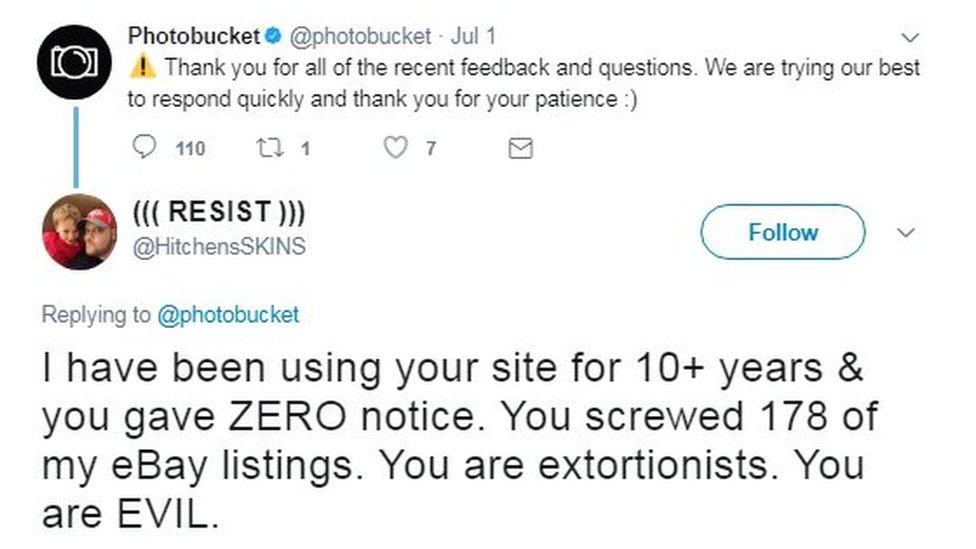
Photobucket is facing complaints from its users on Twitter and Facebook
On 26 June, however, the company published a brief note, external advising users to "take a moment to review our updated terms and policies".
About 500 words into the linked document was a declaration that free accounts would no longer permit image-linking to third-party sites.
Many users realised the change only when their embedded images were replaced by graphics saying their Photobucket accounts needed to be updated.
Devon-based seller vintage store Retro 2 Go, which sells its goods on eBay, was one of those affected.
"I have quite a bit of editing to do," the store's owner, Gigha Klinkenborg, told the BBC.
"A bit of notice would not have been unreasonable to expect. I have deleted my accounts and would not use [Photobucket] again."
'Held to ransom'
Some sellers unwilling to pay the fee have handled the change by uploading their product photos to a rival service.
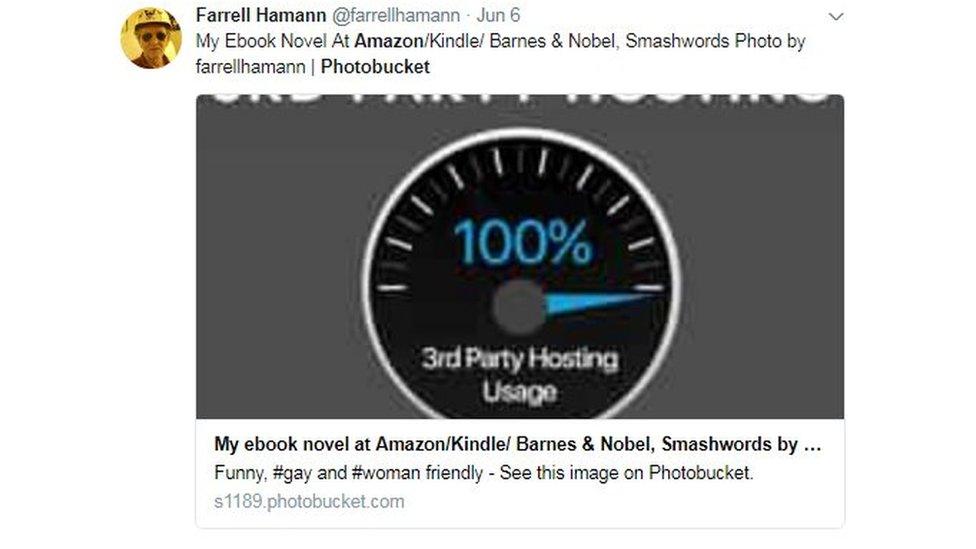
This month-old tweet no longer promotes the image of the book it was advertising
But the new policy has also affected historical social media posts, blogs and forums that were reliant on Photobucket.
One of those affected is Stampboards, a forum with more than 17,000 members who discuss postage stamps and share images of them.
Many of its pages are now filled with Photobucket's upgrade demands instead of the photos of stamps it once showed.
"They are holding you to ransom," the site's administrator, Glen Stephens, told members, external, advising them not to pay the fee.
"You have no guarantee they will be in business... in a month the way this disaster is rolling out."
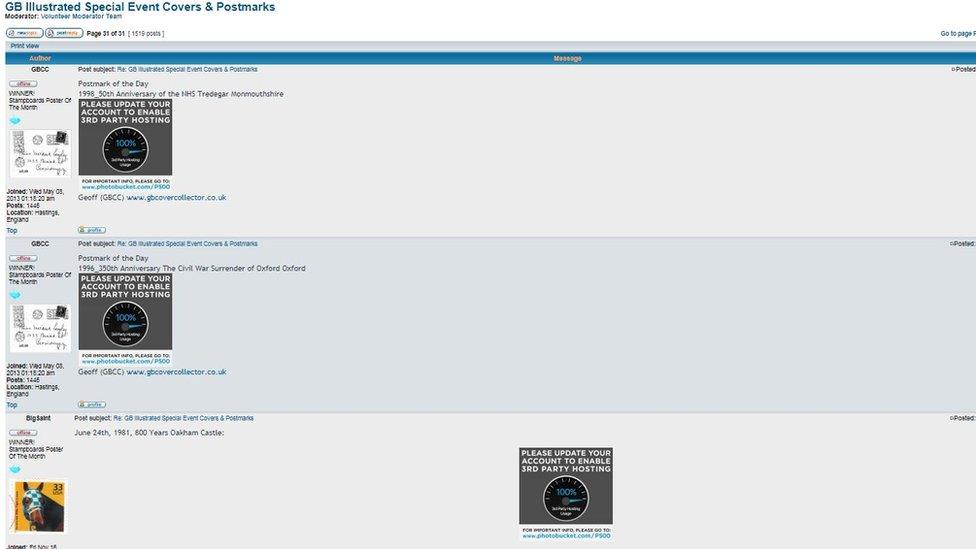
One British digital marketing company said it was understandable that Photobucket had wanted to become less reliant on ads, but criticised the service for both the sums it was seeking and the way it had gone about the move.
"It came out of the blue," blogged Runcorn's Aqueous Digital, external.
"There were no announcements, no emails warning people that it was about to happen and more importantly, no explanation.
"Bulletin boards across the globe are being crippled as previously vibrant threads with detailed images are disappearing.
"People who have used Photobucket for hosting these images successfully for over 10 years are finding that they will have to literally start again with what for some, amounts to a lifetime's work."
But one expert said the public needed to be aware of the risks of relying on any free image service.
"There's a lot of websites out there looking for advertising, and there's a finite amount of advertising spending to go round," said Nigel Atherton, editor of Amateur Photographer magazine.
"And any photo gallery and storage site like this that relies on ads to offer a free service can only continue to do so if they have enough money coming in.
"So, if you put all your photos into any site or app like this where it's not clear how they are going to continue financing their business, then it could come back and bite you at some point in the future."
- Published22 June 2017
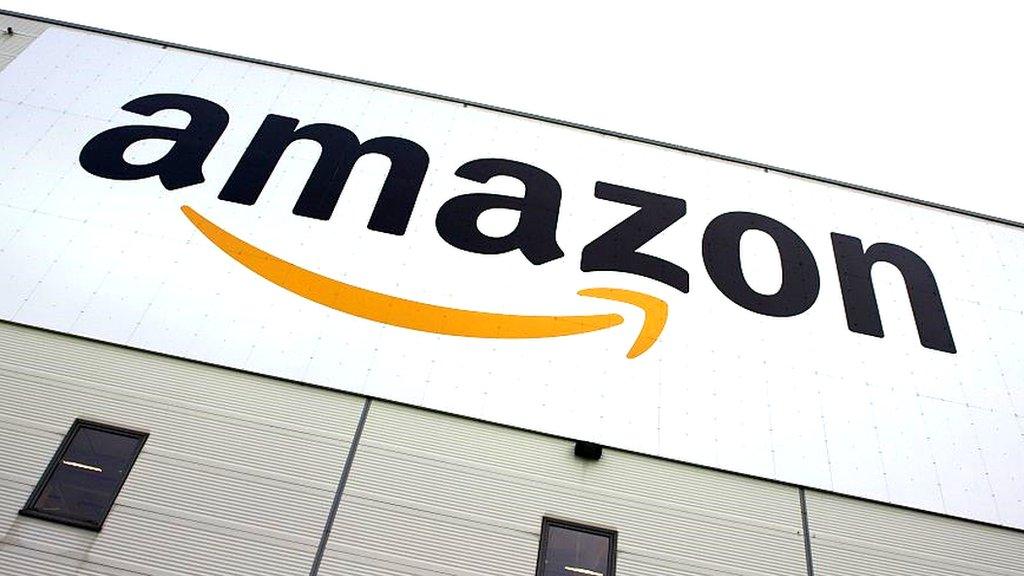
- Published16 June 2017
